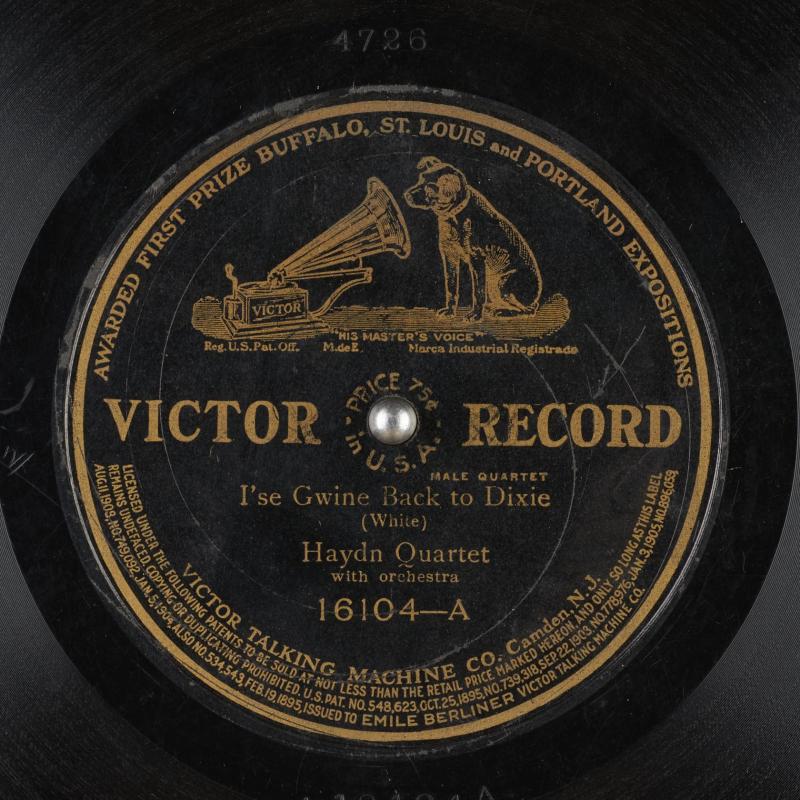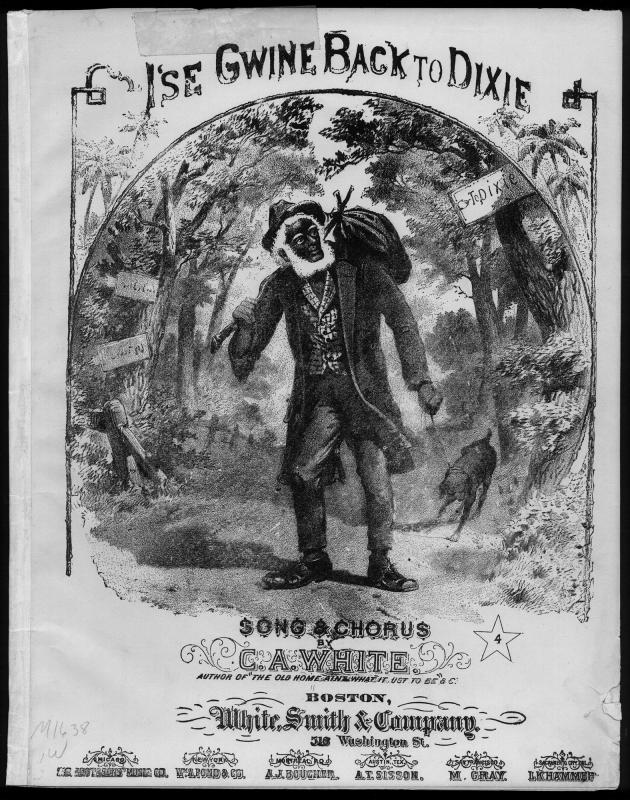I’se Gwine Back to Dixie
MinstrelsyThis song was written in 1874, and shows the typical minstrel preoccupations with the idea that black Americans were nostalgic for plantation slavery. The narrator sings about cotton and working on the river and longing for orange blossoms. He once swore he would never return, we hear, but now his heart yearns for Dixie. Minstrels shows typically included a few “sad negro” songs designed to cultivate nostalgia and longing. The “Haydn Quartet” recorded this in a combination of stiff formality and mock African American dialect


